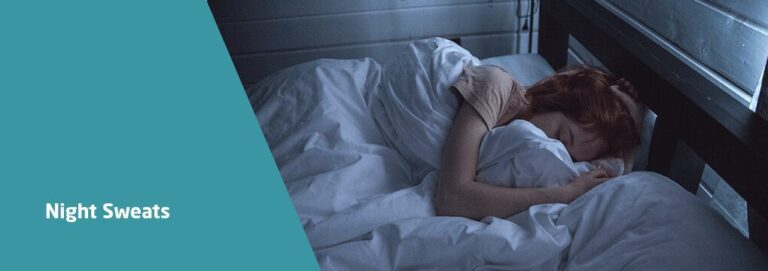Night Sweats – Causes and an Effective Remedy
Experiencing a refreshing night’s sleep is something we all cherish, regardless of the season. However, waking up drenched in sweat, with your clothes clinging uncomfortably to your skin, is far from pleasant. The body sweats during sleep to regulate temperature, but when this sweating becomes excessive without any external factors, it indicates a condition known as night sweats. This common affliction affects many people and deserves attention.
Understanding Night Sweats
While sweating can be expected during the humid days of summer, night sweats are distinctly different. They occur independently of external temperatures. If you find yourself soaked with perspiration even in cool conditions, you are likely experiencing night sweats, also referred to as hyperhidrosis. This phenomenon transcends seasonal changes—it’s a medical concern that can disrupt your sleep and quality of life.
Differentiating between ordinary sweating and genuine night sweats is crucial. If you’re waking up in a cold sweat during winter nights, you’re not merely experiencing typical heat-related discomfort; you’re dealing with hyperhidrosis. Knowing the difference helps pave the way toward effective remedies.
What Causes Night Sweats?
Night sweats can be attributed to a range of factors, some environmental and others medical. Identifying the underlying cause is essential for effective treatment. True hyperhidrosis will leave your sheets wet and your sleep disturbed without any apparent connection to your environment.
Environmental Factors
Certain conditions can lead to night sweats, and these can often be easily rectified. Here are some common environmental factors:
– Uncomfortable Clothing or Bedding: The type of clothing you wear to bed can significantly impact how well you sleep. If you’re bundled up in thick pajamas or layers of bedding, it’s no wonder you wake up sweating. Experts recommend opting for lightweight, breathable fabrics that promote airflow. Cotton and linen sheets not only enhance comfort but also support thermoregulation, allowing your body to maintain a balanced temperature.
– Overheating in Your Bedroom: High indoor temperatures, particularly during the summer, can result in night sweats. Ensuring your bedroom is comfortably cool—ideally between 60 to 70 degrees Fahrenheit—can greatly enhance your sleep quality. An air conditioner or fan can be beneficial in maintaining a desirable temperature, preventing the dreaded nighttime soak.
Medical Reasons Behind Night Sweats
If your night sweats persist despite environmental adjustments, you may be facing underlying medical issues. Here are some common conditions that could be at play:
– Hormonal Changes: Particularly in women, menopause and hormonal fluctuations can lead to night sweats and hot flashes. Conditions like hyperthyroidism can also cause excessive sweating. Proper medical management often significantly alleviates symptoms.
– Obesity: Carrying excess weight can make it challenging for your body to regulate temperature, leading to night sweats. Regular exercise and a balanced diet can help mitigate this issue.
– Sleep Apnea: This common disorder interrupts breathing during sleep and can lead to night sweats. Treatments like Continuous Positive Airway Pressure (CPAP) therapy can help manage symptoms, but adherence to the treatment plan is crucial for effectiveness.
– Additional Medical Conditions: Night sweats can also stem from other health issues such as GERD, anxiety disorders, or reactions to certain medications. Recognizing and addressing any underlying conditions is vital for managing night sweats effectively.
Remedies for Night Sweats
Finding solace from night sweats often revolves around two fundamental strategies: cooling off while you sleep and addressing any underlying health issues. Here are some practical remedies:
– Maintain a Cool Sleep Environment: If adjusting the thermostat doesn’t suffice, consider investing in cooling mattresses or specialized bedding that regulates temperature.
– Wear Light, Breathable Clothing: Opt for loose-fitting pajamas made from natural fibers to enhance airflow. Ditch the heavy fabrics that may trap heat.
– Stay Hydrated: Proper hydration helps regulate body temperature. Drinking enough water throughout the day can lessen the impact of night sweats.
– Seek Medical Advice: If your night sweats are severe or persistent, consulting a healthcare professional is essential. They can help identify any underlying medical issues and advise on appropriate treatments.
In conclusion, experiencing night sweats can be both uncomfortable and disruptive to your sleep. By understanding their causes—be it environmental or medical—you can take proactive steps toward effective remedies. Whether it’s adjusting your sleeping environment or seeking medical advice, reclaiming a restful night’s sleep is within your reach. Don’t let night sweats steal your comfort—take charge and find your path to peaceful slumber.













